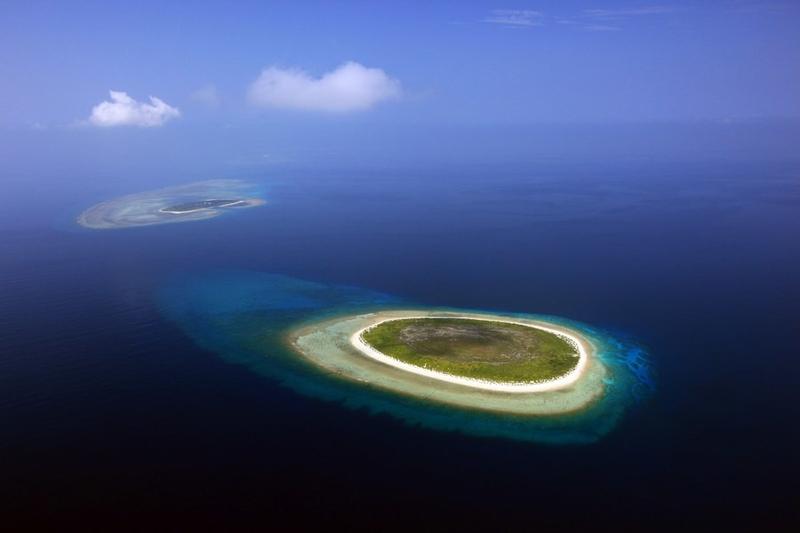 This file photo dated Jun 1, 2011 shows the scenery of China's Xisha Islands, South China Sea. (PHOTO / XINHUA)
This file photo dated Jun 1, 2011 shows the scenery of China's Xisha Islands, South China Sea. (PHOTO / XINHUA)
That the Chinese navy had to block a Philippine warship from trespassing the waters off China's Huangyan Island is the latest proof that the Philippines has no intention to defuse the tensions despite China's repeated calls. Instead, Manila is bent on making provocative moves around Chinese islands and reefs in the South China Sea so the United States can take advantage of the issue to maintain its global hegemony.
According to Senior Colonel Tian Junli, spokesperson for the People's Liberation Army Southern Theater Command, the Chinese military followed, monitored, warned and blocked the ship, and then prevented the Philippine warship from entering China's waters in accordance with the maritime law.
After the weeks-long standoff between the two countries over the sovereignty of the Chinese island in 2012, China has maintained the actual control of the island. In the intervening years, the Chinese navy has made remarkable achievements in terms of its modernization, making it capable of defusing tensions, even defeating contenders to China's territories in the South China Sea.
Since August, Manila has been repeatedly provoking Beijing by taking offensive actions close to the Chinese islands and reefs, including the Ren'ai Reef, Huangyan Island and the Zhongye Island. Monday's incident happened just days after Chinese and Philippine vessels had two "bumps" in the waters near the Ren'ai Reef, which is part of China's Nansha Islands in the South China Sea.
One need not be a military expert to realize that such frequent provocative moves by Manila increases the risk of misjudgments and could even spark a conflict. And in such a worst-case scenario, Manila should be prepared to face the consequences.
Manila's increasing penchant for stoking confrontation in the South China Sea perhaps stems from its confidence in getting the promised support from Washington, in case the situation worsens further.
Recent US aircraft carriers' so-called freedom of navigation in the South China Sea are attempts to embolden the Philippines to confront China. In fact, in another move to boost Washington's support for Manila last week, US President Joe Biden reiterated his "ironclad" defense commitment to the country.
It is clear therefore that there is a "black hand" behind Manila's series of reckless moves that have been infringing upon China's maritime interests. But Manila should not misjudge the situation and continue to act as the cat's paw of Washington, because the US is a past master at using other countries to do its bidding only to abandon them at the key moment. At the end of the day, it will be Manila, not Washington, that will pay the price for its reckless deeds.


